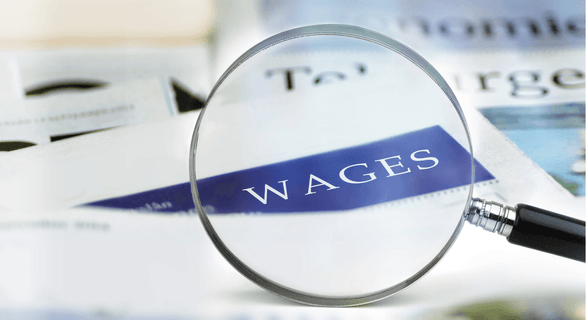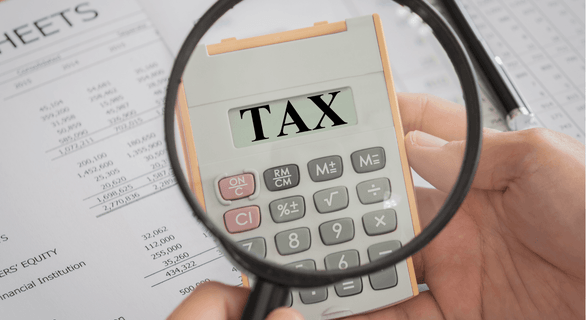
January 16, 2025
Employment updates 2025

Minimum wage increase
As of January 1, 2025, employers in the Netherlands are required to comply with the updated statutory minimum wage. The fixed minimum hourly wage will be increased to €14,06 (for employees aged 21 and older) as per January 2025 and is indexed twice a year. Benefits that are linked to the minimum wage such as AOW, WIA and WW will also increase as a result.
Maximum daily wage
The maximum daily wage, determined by the Dutch Employee Insurance Agency (‘UWV’), is used to calculate government benefits for employees and can be relevant for calculating the amount of continued salary for employees who are incapacitated for work. The maximum daily wage is indexed twice a year. As per January 1, 2025, the maximum daily wage is set at €290,67.
Transitional allowance update
Employees whose employment ends on the initiative of the employer (or if the employee ends the employment due to serious culpable behaviour of the employer) are entitled to a transitional allowance. As per 2025 the maximum transitional allowance increases from €94.000 to €98.000. However, if the employee’s gross annual salary exceeds the maximum transitional allowance of €98.000, they are entitled to the gross annual salary, capped at a maximum of €246.000 (2025) following the ‘Balkenende norm’ under the Dutch Law on the Standardization of Top Incomes (‘WNT norm’).
Tax authority enforcement update regarding independent contractors
As shared in our previous update, as of January 1, 2025, the Dutch Tax Authority will resume full enforcement against organizations employing individuals who, by law, should be considered employees instead of contractors. Following the most recent update by the Dutch Tax Authority, no fines (neither for non-compliance nor for violations) will be imposed for the 2025 calendar year after all. However, with the enforcement starting in 2025, the Dutch Tax Authority will be able to impose additional payroll tax assessments if there is evidence of false self-employment within an organization, for cases occurring after January 1, 2025.
The 2025 maximum tax free travel allowance is € 0,23 per kilometer
The maximum tax free travel allowance will remain € 0,23 for 2025. An employer may choose if, and the maximum amount, they will reimburse their employee’s travel expenses as this reimbursement is not mandatory. However, an employer must apply the increase under the following circumstances:
- If a collective labor agreement containing travel allowance stipulations is applicable, or
- If the employment agreement between the employer and employees states that the employer will contribute the maximum tax-free allowed travel allowance.
This exemption applies to both business and private travel, as long as the employee uses their public transport card or subscription for business travel. Business travel also includes commuting. The condition that the public transport must be in the Netherlands is also removed (in 2024 was only in the NL), which means that subscriptions or discount cards for foreign public transport will also be tax exempt as of 2025.
Max tax-free work-from-home allowance is € 2,40 per day
The tax free work-from-home allowance will be € 2,40 per day in 2025. It is up to the employer to decide if, and the maximum amount of work-from-home allowance, they will provide to the employee. However, an employer must apply the increase if the employment agreement between the employer and employees states that the employer will contribute the maximum tax-free allowed work-from-home allowance.
Discretionary scope work related expense scheme increased to 2,00% over the initial € 400.000
The discretionary scope of the work related expense scheme will increase to 2,00% on the initial € 400.000,- of the taxable annual collective wages. The percentage remains 1,18% for taxable annual collective wages of more than € 400.000,-.
Changes to the 30% ruling (expat ruling)
-
- The 30% ruling salary norms for 2025 are:
- An annual taxable salary of > 46.660,- or
- An annual taxable salary of > € 35.468,- if the employee is under 30 years old and has obtained a Dutch academic university master’s degree equivalent.
- The employer has the choice to either reimburse the actual extraterritorial costs (ET costs) under submission of documents supporting the claim (receipts) OR apply the 30% ruling benefit to the employee’s salary. The following conditions apply for new 30% ruling applications (or a change of employer):
- The 30% ruling will have retroactive effect, up to and including the start date of the employment, if the 30% ruling application is submitted within 4 months of the start of (new) employment. The employer (in agreement with the employee) can choose to either apply the 30% ruling benefit or to reimburse the actual extraterritorial costs per pay period within these initial 4 months. The choice between the application of the 30% ruling benefit and the reimbursement of the extraterritorial costs must be made in the 5th month and will apply for the rest of the year until the following decision moment at the beginning of the following year.
- The 30% ruling will not have retroactive effect if the 30% ruling application is submitted after 4 months of the start of (new) employment. An employer may only reimburse the actual extraterritorial costs untaxed until the commencement date of the ordinance. The choice for the rest of the calendar year is made from the date of the ordinance. The choice is then made per calendar year from that point forward.
- If the 30% ruling application request is submitted to Briddge within 4 months of the employment start date, the statement will, in principle, still be applied retroactively from the start date (provided the employee is eligible).
- The 30% ruling salary norms for 2025 are:
As of 2025, the maximum wage over which the 30% may be calculated will be capped at € 246.000-, per year.
The proposed step-by-step reduction of the 30% ruling has been revoked
It was previously announced that employees who applied for the 30% facility in 2024 would not receive the full advantage for 5 years. Instead, it would be reduced in 3 steps, from 30% to 10%. The Dutch government has revoked this phased reduction. The employers are allowed to pay the employees a maximum of 30% of their wages tax-free in 2024, 2025, and 2026.
Starting in 2027, the percentage will be reduced to 27%. This Scheme applies for employees that become eligible for the 30% facility after 1 January 2024.
Employees for whom the 30% ruling was applied in December 2023 continuously will not be subject to the change.
The 2025 salary thresholds for highly skilled migrants, Intra-Corporate Transferees (ICT) and Blue Card holders
The highly skilled salary thresholds for 2025 are:
- Highly skilled migrant/ICT aged 30 and older: € 5.688,-
- Highly skilled migrant/ICT younger than 30: € 4.171,-
- Highly skilled migrant based on the reduced salary criterion: € 2.989,-
- European Blue Card Holder: € 5.688,-
- European Blue Card Holder based on the reduced salary criterion: € 4.551,-
These are the minimum gross salaries per month excluding 8% holiday allowance. The salaries for highly skilled migrants, ICT professionals and Blue Card holders must always be in line with the market.
The above salary requirements apply to applications received by the IND on or after January 1, 2025.
The 2025 salary threshold for director-major-shareholder (DGA)
The 2025 DGA threshold remains € 56.000,- (2024: € 56.000,-).
Pension
Employees will accrue pension from 18 years of age as of January 2024 (this policy will remain in effect through 2025).





